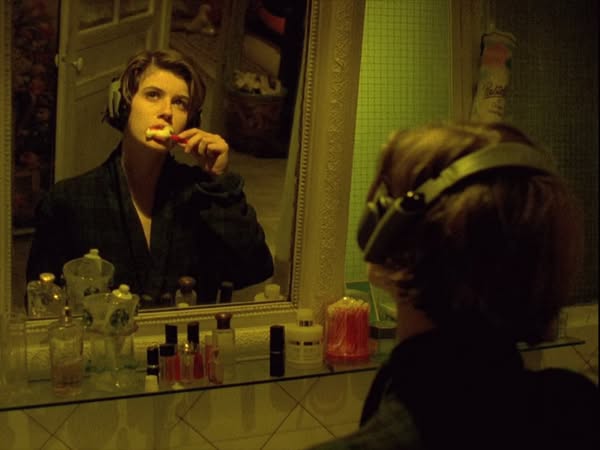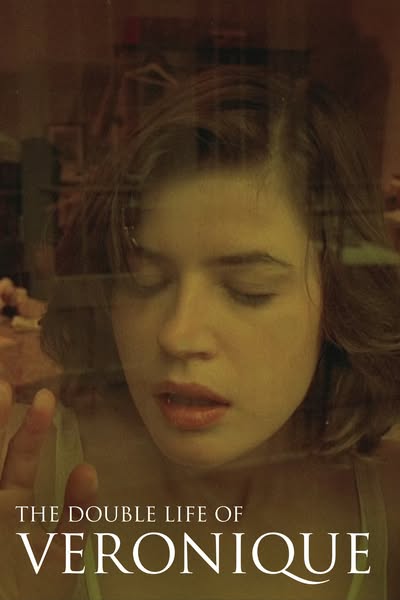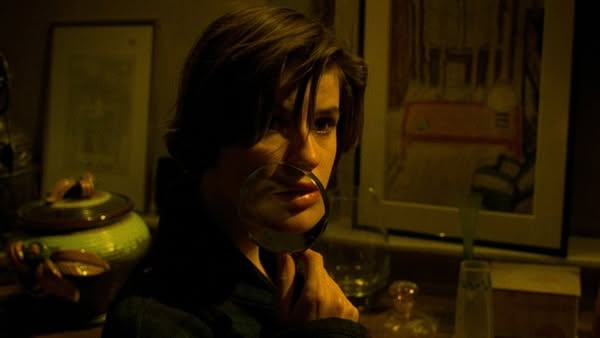The Double Life of Véronique (1991)

The Double Life of Véronique (1991), directed by Krzysztof Kieślowski, is a mesmerizing and enigmatic film that explores themes of identity, connection, and the duality of existence. This visually stunning work is a profound meditation on the intertwining lives of two women—one in France and the other in Poland—who share an inexplicable bond despite never meeting. The film is celebrated for its lyrical storytelling, rich symbolism, and emotional depth.
The narrative centers on Véronique (played by Irène Jacob), who lives in France and leads a seemingly ordinary life as a music teacher. Unbeknownst to her, she has a doppelgänger, Weronika, a Polish soprano who shares her physical appearance and emotional experiences. The film elegantly juxtaposes their lives, highlighting both their similarities and the subtle differences that define their unique experiences. The connection between the two women is palpable, suggesting a deeper metaphysical link that transcends geography and circumstance.

Kieślowski’s direction is marked by a delicate and contemplative approach, allowing viewers to immerse themselves in the emotional landscape of the characters. The cinematography, handled by Sławomir Idziak, employs a rich color palette, particularly emphasizing shades of green and gold, which enhance the film’s dreamlike quality. The visual composition often mirrors the internal states of the characters, creating a sense of intimacy and reflection.

Irène Jacob delivers a breathtaking performance, capturing the essence of both Véronique and Weronika with grace and subtlety. Her portrayal evokes a deep sense of longing and existential curiosity, inviting the audience to ponder the nature of identity and the impact of choices on one’s life. The film’s supporting characters, including a mysterious puppeteer and Véronique’s love interest, further enrich the narrative, each embodying themes of connection and separation.
The score, composed by Zbigniew Preisner, plays a crucial role in establishing the film’s emotional tone. The haunting melodies and atmospheric sound design enhance the sense of longing and introspection, drawing the viewer deeper into the characters’ inner worlds.

The Double Life of Véronique invites contemplation on the nature of existence, the search for meaning, and the ways in which our lives are shaped by invisible connections. The film’s exploration of duality raises questions about fate, choice, and the impact of parallel lives that may never intersect.
In summary, The Double Life of Véronique is a beautifully crafted film that transcends conventional storytelling. Through its stunning visuals, evocative score, and profound themes, it offers a poignant exploration of identity and the complexities of human connection. Kieślowski’s masterful direction and Jacob’s captivating performance create a hauntingly poetic experience that lingers in the mind long after the credits roll, solidifying the film’s place as a landmark in international cinema.











